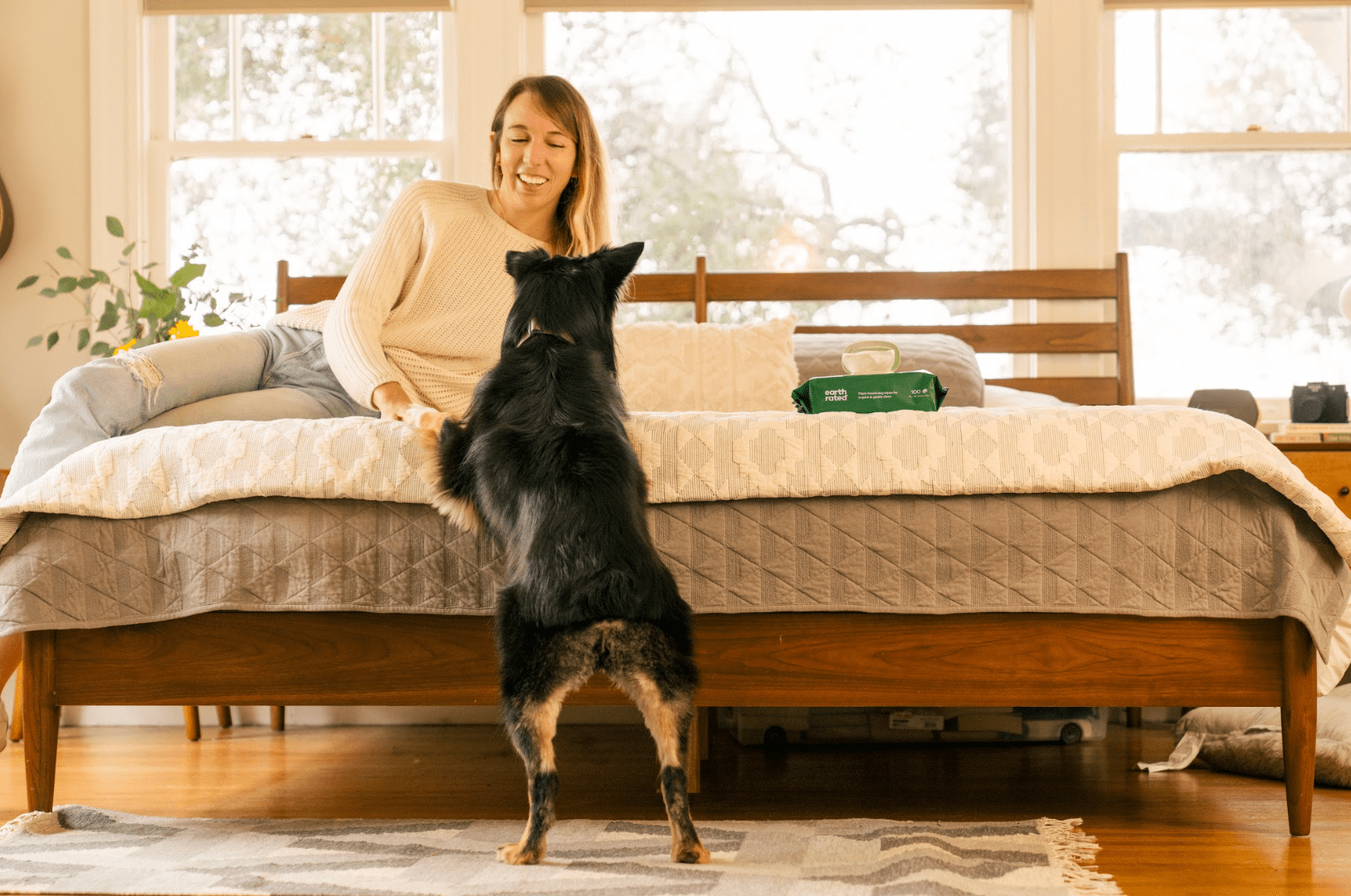Every dog has their quirks, but a persistent, foul odor isn’t something to ignore. Whether it’s that classic “wet dog smell” that won’t go away or an aroma you can’t quite put your finger on, thinking to yourself 🤔 “My dog really stinks - no matter what I do,” can leave you looking for solutions!
Giulia D’Ignazio, professional dog groomer and owner of Brandy’s Canine Grooming, explains that the most common causes of doggy odors include yeast infections, dental issues, and ear infections.
But, not to worry. With the right care and a little patience, most dog odors can be resolved or significantly reduced. Let's explore how!

Common Causes of Dog Odor
When your dog consistently smells bad, it’s often a sign something’s off. From health concerns to environmental habits, identifying the root cause is the first step toward fresher days!
Health-Related Causes
If you suspect your dog’s questionable odor is caused by any of these health-related concerns, a trip to the vet is necessary to treat the underlying infection or issue.
Environmental and Behavioral Factors
Solutions to Combat Persistent Dog Odors
After your dog gets a clean bill of health from your vet, there are a few simple but effective solutions you could try at home. Regular care and the right products can make all the difference in tackling that stubborn dog smell.
Bathing and Grooming Routines
If your dog is smelly and has no underlying health problems, consider adjusting your grooming routine. Regular baths help remove dirt, bacteria, and oils, which can build up and cause foul odors.
“Medium & long coated dogs should get groomed every four to six weeks,” Notes Giulia. “Short haired dogs can be groomed every three to four months.”
Brushing your dog's coat regularly is also important. Not only does it help to remove loose fur, dirt, and dander which can smell, but it also distributes natural oils that keep your dog’s skin and coat healthy.
For dogs with sensitive skin or skin allergies, using a hypoallergenic and deodorizing shampoo is recommended. Earth Rated's gentle formulas are a great option for keeping your dog’s skin in top condition without harsh chemicals. Plus, they’re effective in helping to neutralize odors, leaving your pup smelling fresh and clean!
Giulia recommends shampoos with natural ingredients because they are always better for dogs with sensitive skin due to their gentle formulas.
You can choose a shampoo specific to your dog’s coat type for maximum effect:
For between baths, consider Earth Rated’s No-Rinse Dog Shampoo to keep your dog fresh, especially if they tend to get dirty. Excessive bathing can actually lead to dry skin, so a waterless dog shampoo can keep your dog’s skin healthy and clean.
For the dogs who absolutely can’t resist a romp in the stinky stuff, you can use Earth Rated’s Dog Grooming Wipes after each walk to remove the scent of whatever your dog has rolled in.

Proper Ear and Dental Care
Regular ear cleaning is key to preventing ear infections, especially for floppy-eared dogs more prone to moisture buildup. Start by using soft cotton balls dampened with water or Earth Rated’s Pet Ear Wipes. Gently wipe the inside of your dog’s ears, only cleaning the parts you can see.
Giulia recommends cleaning your dog’s ears about once a month and then seeing if you need more or less cleaning depending on how dirty the ears get. If you suspect your dog has an ear infection, head to the vet first as touching an infected ear can be very painful for your dog.
When it comes to your dog’s breath, regular dental cleaning is important. Bad breath is often a sign of dental problems, and brushing your dog’s teeth a few times a week can prevent these. Use dog-friendly toothpaste, a dental wipe, or a soft brush. Consider dental chews and water additives if your dog needs a bit more oomph!
Maintaining a Clean Living Environment
A stinky dog often means a stinky home, too! To keep odors at bay, consider washing your dog's bedding, toys, and any blankets they use. Once your dog gets stinky, it’s very easy for them to spread it.
Aim to wash your dog’s bedding and toys weekly, especially if your dog is having anal gland problems. You can also consider using a dog-safe deodorizing spray, such as Earth Rated’s Dog Refresh Mist. You can use this spray directly on your dog between baths.

When to See a Veterinarian
If you suspect your dog has an infection of any kind, they need to be taken to the vet for treatment. Persistently bad odors can be a sign of an underlying health problem, which often requires medical attention. For instance, chronic ear infections, dental problems, and skin infections can all lead to nasty smells and won’t improve on their own.
Keep an eye out for other symptoms of potential health problems, too, like:
- Excessive scratching
- Red or irritated skin
- Frequent licking
These symptoms may point to allergies or skin infections. If you notice any of these symptoms alongside a foul smell, consider getting your pup checked out by a vet sooner rather than later to get to the root of the problem.
Shop our line of grooming products now!








